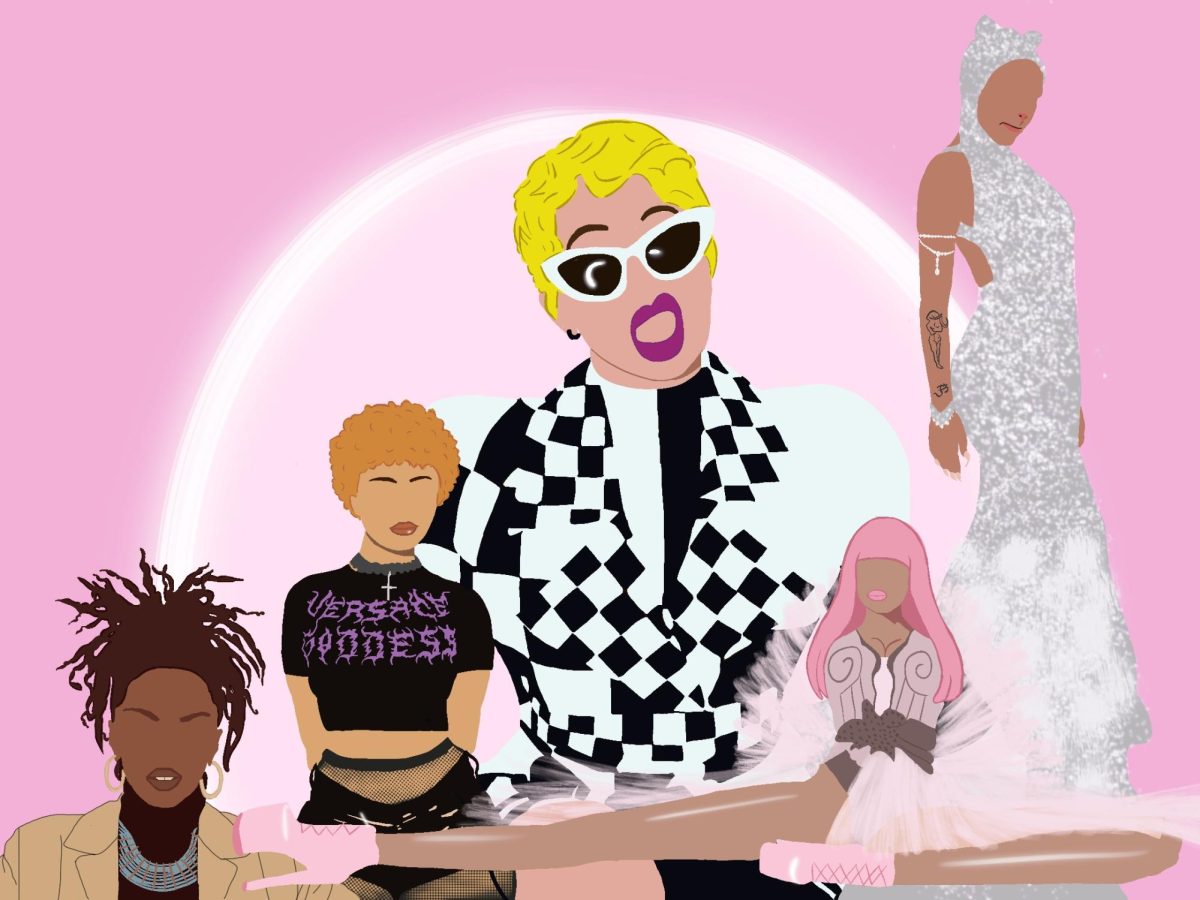Rap is a male-dominated genre, and has been since its rise in the 1970s. Female rappers, such as Nicki Minaj, Megan Thee Stallion, and Cardi B. have challenged this norm in recent years. Their voices have sparked a movement towards a new chapter in rap music. Women are increasingly dominating the rap game, with their songs trending as audios on social media and by selling out concert venues and going on successful tours.
“I think there’s always been huge, influential female rappers, but right now, you’ve got this resurgence… You’ve got these huge names in the industry,” senior rap enthusiast Seth Myers said. “I think there’s probably more of a prominence now than when hip-hop started booming in the ’90s and the early 2000s.”
Forbes released its updated 50 Top Rappers of All Time list in July of 2024. The list names Missy Elliott, Lil’ Kim, Lauryn Hill, Queen Latifah, MC Lyte, M.I.A, and Cardi B, with Nicki Minaj being the only one in the top 10. The list recognizes each for their clever lyricism, fashion, and for paving the way for all women in the rap genre.
Women are gaining recognition for their contributions to the genre. Earlier this month, Doechii won Best Rap Album at the Grammys for her “Alligator Bites Never Heal” mixtape.
Her acceptance speech was intended to inspire those trying to find a place in the industry and was hard hitting for many people in the audience. From other artists of color to women who face difficulty with being taken seriously, her call to break free of stereotypes and feelings of inferiority was relatable to many in the crowd.
“Don’t allow anybody to project any stereotypes on you, that tell you that you can’t be here, that you’re too dark or that you’re not smart enough or that you’re too dramatic or you’re too loud,” Doechii said. “You are exactly who you need to be, to be right where you are, and I am a testimony.”
Being a part of the music industry can be taxing, no matter the genre. Lauryn Hill, the first woman to win in the Best Rap Album category at the Grammys, faced a lot ofhardships in her path to success.
“I sacrificed the quality of my life to help people experience something that had been unreachable before then,” Hill said in a Rolling Stones interview. In New York Times article “The Future of Rap Is Female,” Niela Orr writes about how women are thriving in today’s music world while male artists seem to be struggling. Men seem to be tackling grief and societal struggles in their lyricism while female rappers often have more upbeat tones of empowerment and embracing their womanhood and sexuality, despite facing many of the same hardships. Orr interviewed Flo Milli, a rapper who has grown popular in more recent years and had a lot to say about the resurgence of interest in female rap.
“If you look at the history, it was always female rappers. But at one point, it was male- dominated, and all you hear is these men degrading women, or not really making us feel loved,” Flo Milli said.
Out of five students asked to be interviewed for this article, Myers was the only one who
said yes. This presents one of the main limitations for women and their success in the rap industry: embarrassment. Many people fear they will be judged for enjoying music that often feels hypersexualized. Myers encourages others to listen to the music they enjoy, regardless of what others think.
“Sexyy Red is a completely different person than I am, but at the same time, it’s like who cares,” Myers said. “It’s a popular song, it’s catchy, I’m gonna sing it.”
























